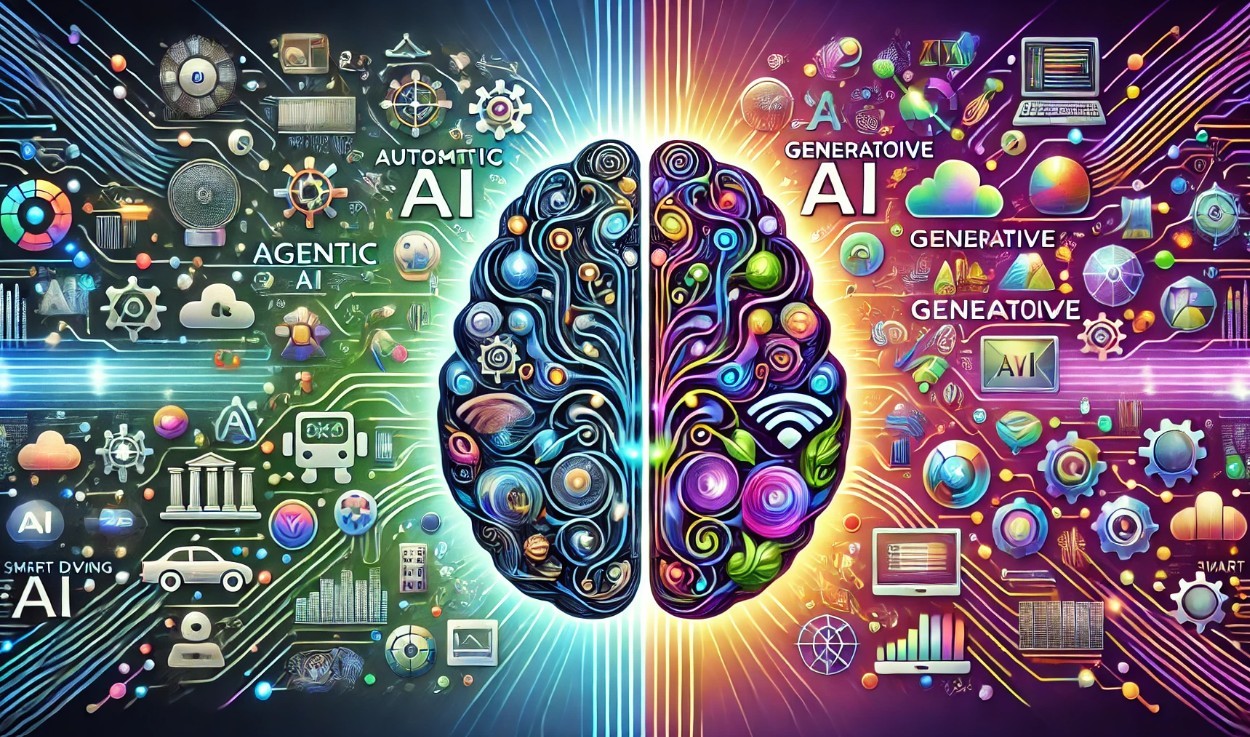Early Childhood Education vs Elementary Education: Differences, Similarities, Job & Salary
 How Online Learning Reshapes the World of Education How Online Learning Reshapes the World of Education |
 10 Best and Most Popular Education Trends of The Years 2023-2025 10 Best and Most Popular Education Trends of The Years 2023-2025 |
 |
| Early Childhood Education vs. Elementary Education: Differences and Similarities |
| Contents |
In the United States, aspiring educators or teachers frequently discuss whether they should get their training in early childhood education or primary education. In the end, the decision will boil down to your interests, your goals, and your capacity to dedicate time and effort to acquiring knowledge independently.
To assist you in deciding what the next step in your professional development should be, KnowInsiders compares and contrasts the career paths of elementary and early childhood education.
Why should We Care about Early Childhood Education vs Elementary Education?
You may be considering a career in education if you have a deep commitment to helping others and a deep love for working with children. In this context, teachers rank among the highest-paid, most-important workers in the economy.
For some, teaching is a vocation; for others, a calling; and for still others, a lifelong passion. And there are a wide variety of paths you can take once you enter the field. All students, from the youngest to the oldest high school seniors, benefit from having excellent teachers. To what extent do you agree with this assessment?
If you have a passion for working with young children, you may want to think about a career in elementary or early childhood education. You may be trying to figure out what kind of setting is best for you in terms of advancing your career, what kind of people you connect with best, and what kind of job is within your current reach.
Early childhood education is now a crucial component of contemporary society. Educational authorities have realized the value of giving young children a nurturing and stimulating environment. In order to care for the inquisitive minds of young children who are not yet prepared for public school, they have implemented early learning environments, such as kindergartens and preschools.
Early learners can explore their interests, form relationships with peers, learn fundamental concepts, and develop crucial life skills in these environments, which offer a safe and stimulating environment.
In the United States, the early education sector and the elementary education sector overlap. They focus solely on instructing elementary school children, ages five through eight for the early childhood program and grades one through five for the regular elementary school. A job description for elementary school teaching would be very similar to that for early childhood education, with the main difference being that elementary school curriculum is developed with slightly older students in mind.
| The people who teach us first can have a profound impact on our lives, both in terms of our desire to learn and the ways in which we go about doing so. The difference between a career in elementary education and early childhood education may come down to the type of teaching one hopes to do and the specific set of skills one is most passionate about developing in their students. |
Quick Facts - Early Childhood Education vs. Elementary Education
♦ Early childhood education caters to children up to age 8; elementary education caters to children from first grade through eighth grade.
♦ The job outlook for early childhood education teachers is projected to grow by 15% from 2021 to 2031. The outlook for elementary educators is 4% growth during that same period, according to the U.S. Bureau of Labor Statistics.
♦ The ten most desired skills employers are seeking in prospective errly childhood teachers:
Child development
Child care
First aid
Lesson planning
Cleaning
Music
Psychology
Record keeping
Case management
Scheduling
♦ The ten skills elementary teachers were seeking most:
Lesson planning
Mathematics
Collaboration
Staff development
Scheduling
Curriculum development
Workshops
First aid
Community relations
Decision making
What is Early Childhood Education in the US?
The goal of early childhood education is to give kids the tools they need to succeed in both their academic and social lives. The development of children's self-esteem, social and cognitive skills, and self-esteem is a common goal of early childhood education.
An early childhood educator's typical day might involve teaching young children how to play nicely with others, express their emotions through art projects, or recognize the value of little tasks like cleaning up after playtime.
Playtime is a common way for kids to pick up a variety of skills, including cognitive, communicative, and social ones.
In the middle of the 20th century, as mothers were increasingly choosing to pursue careers outside the home, parents started enrolling their kids in preschools (or early childhood education facilities).
The federal government began defining early childhood education in 1965. The Department of Health and Human Services responded by establishing the Head Start program. One of the earliest responses to the demand for more qualified early childhood educators was Head Start.
Why is Early Childhood Education Important?
Early learners can develop their interests in stimulating environments. They can learn new skills, discover new ways to interact with the world, and appreciate lifelong learning with the right guidance.
Creative play, hands-on experimentation, and topic exploration help early learners understand how their interests fit into life.
Early childhood development involves peer relationships. It teaches kids social skills, self-expression, and healthy relationships. Due to their limited social experience, young learners may struggle to make these connections.
Early learners can learn lifelong skills. Children can learn problem-solving, communication, critical thinking, and collaboration with proper guidance. Playing, reading, exploring nature, drawing, writing, and playing educational games can teach these life skills.
Early learning of these skills gives children confidence to face future challenges.
Early Childhood Educators
Infants through preschoolers are the youngest students with whom early childhood educators work. They watch over young children who have not yet entered kindergarten and assist them in acquiring the fundamentals of learning. Teachers in early childhood education can incorporate a variety of learning styles due to the varied nature of early childhood programs, from daycare and preschool centers to Montessori-style institutions or those focused on specialized education.
Necessary skills
A person who enjoys working with children and possesses patience and empathy is the ideal early childhood educator. Early childhood educators should also be able to work well in a team since they frequently supervise several staff members.
In order to help children get ready for elementary school, early childhood educators must introduce them to reading, math, and other creative pursuits. Aside from leading games like tag with the children, educators in this field may also organize exercises that encourage physical fitness.
Salary Expectations
The U.S. Bureau of Labor Statistics (BLS) estimates that the annual salaries for early childhood educators ranged from $22,840 to $58,530.
Preschool and early childhood educators frequently work outside of publicly funded school systems, occasionally through nonprofit or religious organizations with restricted funding and occasionally as privately funded organizations. The flexibility in qualifications for this position lowers the barrier to employment entry and is one of its benefits. Sadly, this might make qualified or experienced early educators frequently undervalued.
Job Outlook
According to the BLS, the employment outlook for early childhood educators is expected to increase by 15% between 2021 and 2031. This projection shows an above-average growth rate when compared to the average for all occupations, despite the fact that there is a national staffing shortage in education.
What is Elementary Education?
Students are taught literacy and math in elementary school, among other subjects. Direct instruction, working with other teachers and parents, and encouraging independent work among other strategies are used to achieve this. Teachers in elementary schools typically work with students in the first through eighth grades.
The foundation of a child's educational journey is elementary education. It lays the foundation for future learning and is the first step in a child's development.
Teaching kindergarten through fifth graders is a rewarding and fulfilling part of an elementary education career.
It is the duty of elementary school teachers to foster a supportive learning environment in which students can hone their literacy, math, science, and social studies abilities. Along with guiding their students as they discover their interests and talents, they also offer guidance.
Elementary school teachers need to be passionate about what they do, have excellent communication skills, and have patience and understanding of the unique needs of each student. For those who are interested in assisting in influencing the future of our country's youth, an elementary education career can present many exciting opportunities with the right credentials and dedication.
For elementary school teachers to reach and instruct their students effectively, communication is essential. Elementary school teachers must be able to speak clearly and concisely with both children and adults. Additionally, they must be able to convey complex ideas in ways that kids can understand. For teachers to create an engaging learning environment and facilitate lively classroom discussions, strong communication skills are a necessity.
Why is Elementary Education Important?
Between preschool and fifth or sixth grade, it helps children learn reading, writing, problem-solving, critical thinking, and communication.
Elementary school encourages creativity and talent development by letting kids explore their interests. Elementary education helps kids understand the world and prepare for higher education.
Elementary education allows children to explore their interests and develop their creativity. They can also learn from others and gain new perspectives. They can generate novel ideas that benefit both themselves and society.
Elementary education helps children understand the world and develop life skills. Children learn how things work, problem-solving, and social skills in elementary school. They also learn about other cultures and beliefs to better understand their own and others. Elementary schools can prepare children for the future by providing a well-rounded academic and social-emotional education.
Elementary education lays the groundwork for future academic success. Elementary education prepares children for college by teaching reading, writing, and problem-solving. It also fosters critical thinking and a love of learning. A solid elementary education can help kids succeed in school.
Elementary Educators
Elementary education typically starts in kindergarten and ends when students enter middle school. Older elementary school students frequently have better attention spans, allowing teachers to start using structured lesson plans that emphasize critical thinking and learning new information. Additionally, they impart more information on a number of subjects, including science, math, and language arts.
Necessary skills
Success in an elementary education position necessitates a range of abilities. The ability to communicate effectively is perhaps the most crucial trait that all teachers should possess. To effectively manage classroom behavior and instruction, teachers must communicate with their students, parents, and other teachers.
Teachers also require patience as a skill. Teaching can be challenging at times, particularly when working with young students who are still learning social skills. Being able to instruct many students at once requires a lot of patience.
To meet the various daily expectations, teachers must also be well-organized and effective. This could entail preparing lesson plans in advance so they can spend class time instructing, or it could entail conducting research to choose future subjects and teaching strategies.
Salary expectations
According to the BLS, salaries for kindergarten and elementary school teachers ranged from $43,950 to $99,420 annually as of May 2021. Special education or substitute teachers are not paid in this range. This range is higher than that of early education, and if a teacher has a master's degree, there may be room for further increases. Due to a lack of employees, many districts have raised salaries to encourage teachers to rehire and hire new workers.
Job outlook
Between 2021 and 2031, it is anticipated that the overall employment rate for elementary educators will increase 4%. Current staffing shortages are not taken into account in this projection. This number is expected to vary depending on district and state budgeting, which is currently focused on keeping existing teachers and luring new ones across the country.
Differences and Similarities: Early Childhood Education vs Elementary Education
 |
| Differences and Similarities Between Early Childhood Education vs Elementary Education |
The process of becoming an early childhood education or an elementary school education can look very different from one another, depending on factors such as day-to-day responsibilities, teaching standards, and educational requirements. When choosing a program for an advanced degree, prospective teachers might want to take into consideration the following factors.
The age of the students is the main distinction between early childhood and elementary education. Teaching young children, up to age 8, falls under the category of early childhood education. Typically, elementary education begins in the first grade and lasts through the eighth grade.
Both programs require education and practical training before certification can be granted, though elementary teacher education programs typically have more demanding requirements than early childhood programs.
Which learning environment, elementary or early childhood, more appeals to you? The final decision is yours, but you should think carefully about a few factors as you evaluate each potential career.
Professional Skills and Core Competencies
Children's learning skills advance as they age. Teachers must change their pedagogical approaches accordingly.
Early childhood educators must possess the following key competencies:
Patience: Teaching young children is not a linear process and necessitates a great deal of patience due to their short attention spans and frequent emotional outbursts. Teachers can foster successful student-teacher relationships by maintaining their composure and showing compassion throughout the classroom experience.
Creativity: Young children learn through a variety of senses, and often respond best to novel ways of presenting fundamentals of education, such as storytelling, music, visual aids, and hands-on activities.
Controlling the Class: Children with limited school experience can be difficult to manage in the classroom. Educators who take the time to craft and implement effective classroom management strategies can help foster an environment conducive to learning.
Essential abilities for elementary educators include:
Effective scheduling and preparation: Lesson plans and daily routines need to be structured to help students learn and progress toward standards.
Ability to communicate and interact with others: Educators need robust communication and interpersonal skills to effectively impart knowledge and build trusting relationships with their students.
Expertise in the field and strategic preparation: As students progress through school, they begin to specialize in one or more areas of study, such as algebra, chemistry, or world history, and receive more in-depth instruction in those fields. Teachers of secondary school students should have a solid background in the subjects they teach.
Education Requirements
To become an elementary or early childhood educator, people can choose from a variety of different career paths. Most early childhood educators possess at least an associate's degree in addition to any certificates or licenses needed by their state.
As opposed to early childhood educators, who typically need to complete an additional two to four years of education, elementary educators will have earned a bachelor's degree prior to receiving their education certificate or license.
Pursuing an advanced degree, such as a doctorate in education, can be a crucial stepping stone for educators looking to assume a high-level role in education, such as principal or education policymaker. By doing this, educators can gain a thorough understanding of the field of education and develop the crucial leadership skills necessary to make decisions about public policy that go beyond teaching and influence the direction of future educational standards.
Salary and Career Outlook
The impact of excellent teachers on their students' lives is immeasurable. By encouraging creativity, providing support, and cultivating an environment that motivates students to learn and grow into their best selves, educators can have a long-lasting effect on future generations.
The average annual salary between early childhood education and elementary education can vary significantly depending on education, experience, location, and whether a school is public or private.
Early Childhood Education: The median annual salary of preschool teachers was $30,210 as of May 2021, according to the US Bureau of Labor Statistics (BLS), despite the fact that many educators enter the field of early childhood education with an associate degree. The field is expected to expand by 18% between 2020 and 2030, which is much faster than the national average.
Elementary Education: For elementary school teachers and kindergarten teachers, respectively, the median annual salary was reported by the BLS to be $61,400 and $60,900, respectively. Both professions call for a bachelor's degree or higher as a prerequisite for teaching certification. The BLS also projects that the field will expand by 7% between 2020 and 2030, which is in line with the national average for all occupations.
In comparison to postsecondary educators who have finished graduate programs, those with advanced degrees, such as a doctorate in education, are more competitive for high-level positions with higher salaries. As of May 2021, the BLS reported that the median yearly salary for postsecondary teachers was $78,160.
Which Education Environment is Right for You: Early Childhood vs. Elementary Education?
If you are interested in working with children, early childhood education and elementary education are both worthwhile career choices to take into account. When deciding between the two, there are a few things to take into account.
The first decision to make is whether you want to work with younger or older kids. While elementary school teachers typically work with kindergarteners through the eighth grade, early childhood educators typically work with children up to the age of eight. In comparison to early childhood educators, who place more emphasis on socialization and developmental learning, elementary school teachers also have greater subject matter flexibility.
Your preferred working environment is a further consideration. While elementary school teachers work in school classrooms, early childhood educators typically work in daycares or preschools. Although both jobs entail close collaboration with families, the relationships that are developed depend on the age of the students and the institution where they are being educated.
Finally, it's crucial to take into account options other than early childhood and elementary education; special education and secondary education are both rewarding options for teachers desiring to work with older students.
Knowing what's best for you can be challenging when deciding whether to pursue a degree in early childhood education or elementary education. It is crucial to comprehend the primary distinctions between these two educational paths because of this.
If you really want to make teaching fundamental subjects like math, science, and history interesting for your students, elementary education is a fantastic choice. Teachers in elementary schools must be prepared to engage, challenge, and reason with their students every day because they are older and have more independence. Although elementary school teachers can work with children of all ages, if you prefer to work with children over the age of five, this is the best career path for you.
Careers in early childhood education are a great option for those who want to develop young children's minds through imaginative activities like storytelling, art, and music as well as the fundamental academic concepts. In general, early childhood education curricula are less structured than those in elementary schools because very young children are frequently encouraged to learn through their own interests and exploration. The primary responsibility of early childhood educators is to lay the groundwork for students' future attitudes toward and experiences with learning. Early childhood education is best suited for aspiring teachers who are enthusiastic, creative, and prepared for anything – including holding, feeding, and soothing young children.
For those who want to work with children but lack the time or flexibility to devote to a four-plus year course of study, early childhood education is a fantastic option.
In Conclusion
It is rewarding on any level to contribute to the education and empowerment of the next generation. Early childhood education and elementary education each have their own set of advantages and disadvantages when compared to one another. You have been provided with the information you need, but the choice is ultimately yours to make.
The answer to this question depends entirely on your preferences and who you are as a person.
 Education in the Age of Uncertainty: How Will Behave and Prepare Education in the Age of Uncertainty: How Will Behave and Prepare Due to the raging COVID pandemic, perhaps the visualization of uncertainty has become clearer. |
 Online Education Could Replace College in the Future Online Education Could Replace College in the Future Within the last few years, more students have been registering for online courses. |
 Is School Really Easy in the US? Is School Really Easy in the US? Are schools easy in the US? Find out the answer to this tricky question! |
 Top 10 Best Countries for Higher Education in the World Top 10 Best Countries for Higher Education in the World Which country in the world has the highest quality education? Most of them are in Europe. |


























